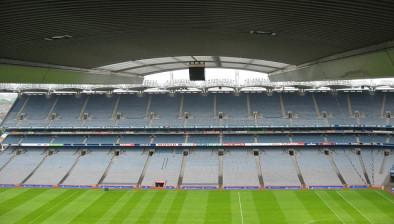High Court: Judicial review application to quash planning permission for wind farm rejected
A couple who live near a proposed wind farm in Co Galway have lost a legal bid to overturn planning permission for the development in the High Court.

About this case:
- Citation:[2020] IEHC 122
- Judgment:
- Court:High Court
- Judge:Mr Justice David Barniville
Mr Justice David Barniville held that John Rushe and Maire Ní Raghallaigh have failed in their application for judicial review seeking an order of certiorari quashing a decision of An Bord Pleanála, which was made on 19 February 2016 granting permission to Western Power Developments Limited for the development of a wind farm in Moycullen, County Galway.
Background
Mr Rushe and Ms Ní Raghallaigh live near the proposed wind farm. In addition to seeking an order of certiorari, they also sought various declarations and, if necessary, a preliminary reference to the Court of Justice of the European Union pursuant to Article 267 of the Treaty on the Functioning of the European Union.
Mr Rushe and Ms Ní Raghallaigh’s challenge to the Board’s decision was advanced on two general legal grounds. The primary basis for their challenge was their contention that, in granting permission for the proposed wind farm, the Board did not comply with the provisions of Council Directive 92/43/EEC of 21 May 1992 on the conservation of natural habitats and of wild fauna and flora (the Habitats Directive) and s.177V of the Planning and Development Act 2000 (as amended) in relation to the appropriate assessment (the AA) of the environmental impact.
Counsel for Mr Rushe and Ms Ní Raghallaigh confirmed that the main focus and emphasis of their challenge was in relation to the AA carried out by the Board under the Habitats Directive and s.177V of the 2000 Act.
While a number of other grounds of challenge were set out in the pleadings, these were not pursued by Mr Rushe and Ms Ní Raghallaigh in their written submissions or at the hearing. They did not pursue any application for a reference to the CJEU pursuant to Article 267 TFEU.
Martin Walsh, a Circuit Judge in England and Wales, who owns a cottage near the proposed development, supported their application. Mr Walsh participated in the planning process before the planning authority, Galway County Council, and appealed the Council’s decision to grant permission for the proposed wind farm to the Board. He swore an affidavit in support of Mr Rushe and Ms Ní Raghallaigh’s challenge (and attempted to advance further grounds of challenge), and he provided a written submission, appeared at the initial hearing, made oral submissions and, following an adjournment of proceedings, provided an additional written submission prior to the resumed hearing of the case.
The proceedings, Mr Justice Barniville said “have had a somewhat tortuous history”. They were listed for hearing on two prior occasions and were adjourned to await the outcome of Connelly v An Bord Pleanála [2018] IESC 31.
All parties were agreed that the judgment of the Supreme Court in Connelly, and its discussion of the obligations of the Board in carrying out an AA under the Habitats Directive and s.177V of the 2000 Act, was the most directly relevant authority.
Most of the submissions of the parties dealt with whether the Board had complied with the Connelly recognised obligations imposed upon it in carrying out an AA. The parties also sought to rely on case law from the CJEU.
Reliance was placed by all the parties initially on the opinion of Advocate General Kokott in Case C-461/177 Holohan & ors v An Bord Pleanála (7 August 2018) and subsequently on the judgment of the CJEU in that case (7 November 2018), which was referred to the CJEU by Mr Justice Humphreys in Holohan & ors v An Bord Pleanála [2017] IEHC 268.
Conclusion
Mr Justice Barniville concluded that Mr Rushe and Ms Ní Raghallaigh failed in their challenge to the Board’s decision on both the AA and EIA Directive grounds advanced by them with the support of Mr Walsh. He concluded that, with regard to the AA carried out, the Board in its decision complied with its obligations under the Habitats Directive, as recognised and applied in the case law of the CJEU and the Irish Courts. The Board correctly identified and applied the test for AA identified by the Supreme Court in Connelly and nothing in the CJEU’s judgment in Holohan instructed the court to reach a different conclusion.
The judge concluded that Mr Rushe and Ms Ní Raghallaigh failed in challenging the Board on EIA grounds. He decided that the Board properly engaged with the observations made and did in fact assess the environmental aspects of the development, contrary to Mr Rushe and Ms Ní Raghallaigh’s contentions.
Mr Justice Barniville rejected the applicants’ challenge to the Board’s decision and refused their application for judicial review.











